Inside Williams: Unveiling the Unconventional Family Behind Motor Racing's Success Story
Movies are one thing, but recent years have seen a wealth of brilliant racing documentaries hit the big screen and television. Here we celebrate our favourites, from a hair-raising insight into the Isle of Man TT to a personal account of contributing to a factual film. But we start with one of the great true life stories of all time charting the trials and tribulations of one of Formula 1’s most famous families: Williams
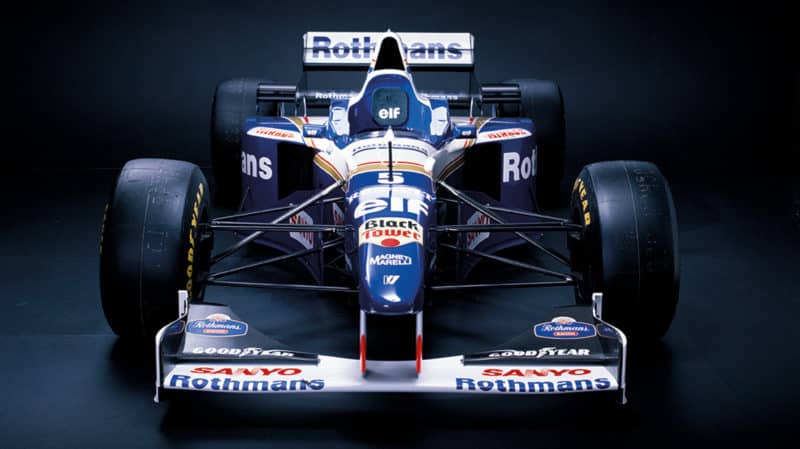
There’s a light moment in Williams where daughter Claire affectionately prods her father Frank for his lack of connection to the real world. He hasn’t been in a shop for “45 years”, she says, and asks him how much a newspaper costs today. “15p” he says with a sheepish smile that can’t hide the reality he genuinely has no ballpark idea. It’s one of a string of odd moments in a strikingly revealing, absorbing and often uncomfortable feature-length documentary that offers a glimpse inside the dysfunctional, tragic family that has driven one of motor racing’s greatest rags to riches success stories.
A simple Formula 1 history lesson? No, it’s much more diverting.
F1 people are rarely ‘normal’ in any generally accepted sense. Delve behind the grand prix curtain and you tend to find weirdness driven by astonishing selfishness, an insular ‘bubble’ mentality and a bipolar dedication to winning – and the more successful they are the stranger these characters tend to be. Sir Frank Williams is right up there in the weird stakes.
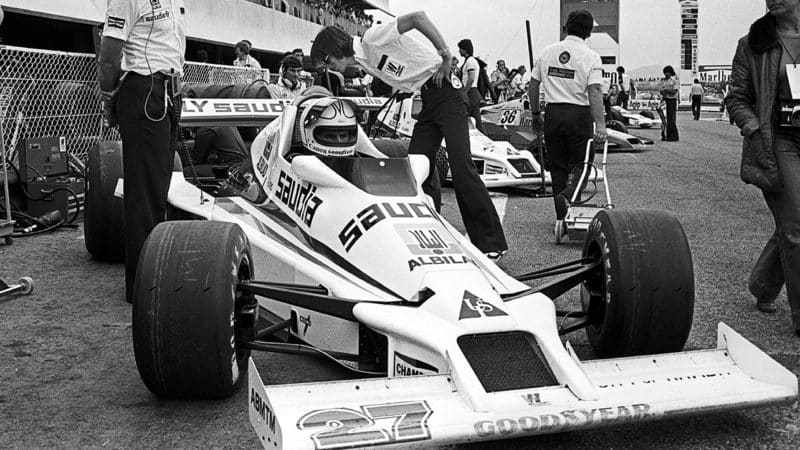
Relaying instructions to Alan Jones ahead of the 1978 French Grand Prix. This was Williams’ first year as a fully fledged Formula 1 constructor
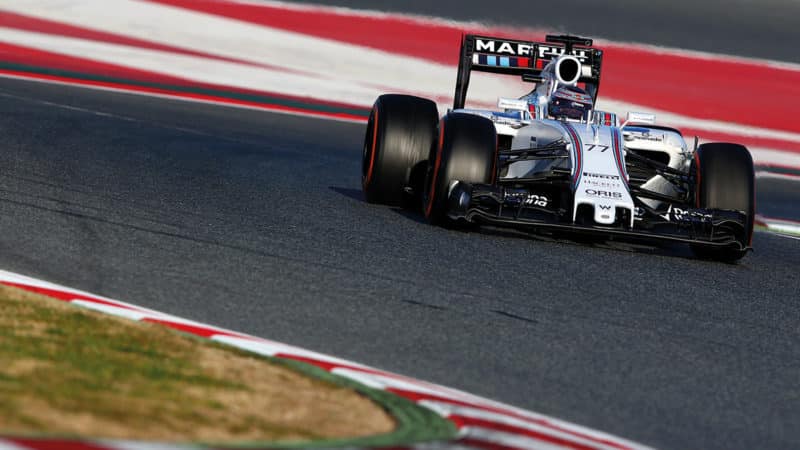
Williams features film as recent as 2015, when Bottas and Massa actually had a car capable of fighting for podiums
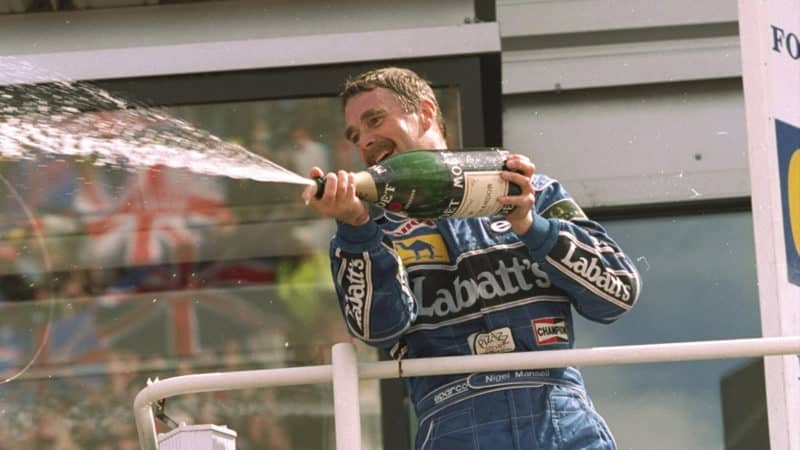
Mansell sprays the champagne from the British Grand Prix podium at Silverstone in 1992
Credit where it’s due for honesty: if a family is going to open itself to such scrutiny blemishes will stand out – and boy, you can’t miss the bruises in Morgan Matthews’ masterfully crafted 102-minute film. They are raw, tender, painful and for all the talk of his infamous magnetic charm, Frank doesn’t come out of it well. This is not the obvious, well-worn story of a driven man overcoming the personal trauma of a car crash that robbed him of his physical freedom, rising from the darkness to soaring achievement. Instead, it’s a portrait of a monster. A wonderful, spirited, inspirational one – but a monster nevertheless, who has a deal to answer for to the people who love him the most.
This is not Frank’s story, it’s his abnormally devoted wife Ginny’s, too
But this is not Frank Williams’ story. Mostly it’s his abnormally devoted wife Ginny’s, who died of cancer four years before this film was released. Her cut-glass voice, above all the interviews with such as Frank’s lifelong friend Dave Brodie, partner Patrick Head, Nigel Mansell, Nelson Piquet, Frank Dernie and many more, rings through the well-documented racing history, via micro-tapes she recorded with her friend Pamela Cockerill for her deeply personal book A Different Kind of Life. A book she wrote about her side of living with Frank in the wake of his accident in 1986, because she couldn’t talk to him about anything beyond the ‘stiff upper lip’ surface of coping with life-changing injury. Can you imagine, writing a book about your dearest loved one and publishing it to the world as the only means of communicating with them? And then, astonishingly, he doesn’t even read it. The most upsetting scene is when Frank visits Claire, who insists on reading a section to him. She can’t help but breakdown – anyone in her shoes would; Frank is quiet, clearly moved, but cannot shed a tear or offer a word of comfort.
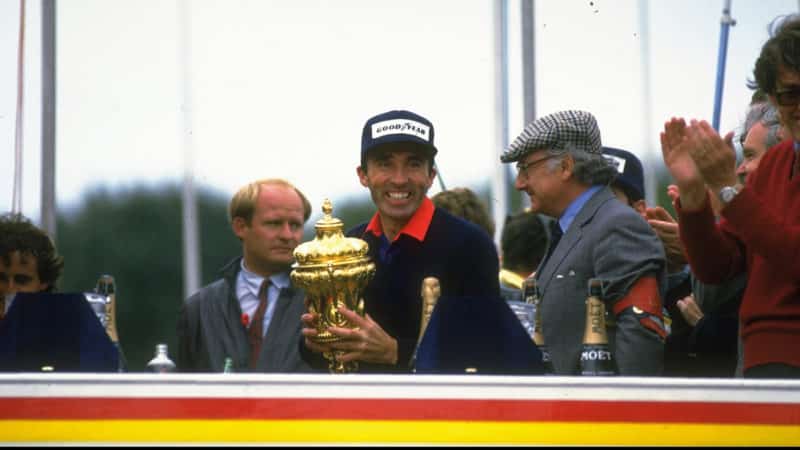
All smiles for Frank with the 1985 European GP trophy after Nigel Mansell’s win at Brands Hatch
Through Ginny’s tapes, stilted and yet revealing interviews with Frank, plus insights from family, friends and colleagues, the Williams story rolls out with racing archive and a surprisingly effective reconstruction of the 1986 road accident. Cine film from Frank’s early days as a quick but calamitous racer is terrific, and we’re guided through his difficult South Shields childhood: growing up without a father lost in the war, sent to a Catholic convent at five(!) from which he didn’t emerge until 16… No wonder he was off-beat. But does that justify taking Ginny for granted, how he went back to work right after their perfunctory registry office wedding, the unfaithfulness, how he missed every one of the 32 family holidays in Spain? There are no complaints from Claire, who inherited the stiff upper lip tendencies of her parents. But there’s a knowing sadness in her eyes along with her steel, perhaps an awareness out of keeping with F1 people that for all the surface glories, hers was a warped upbringing.
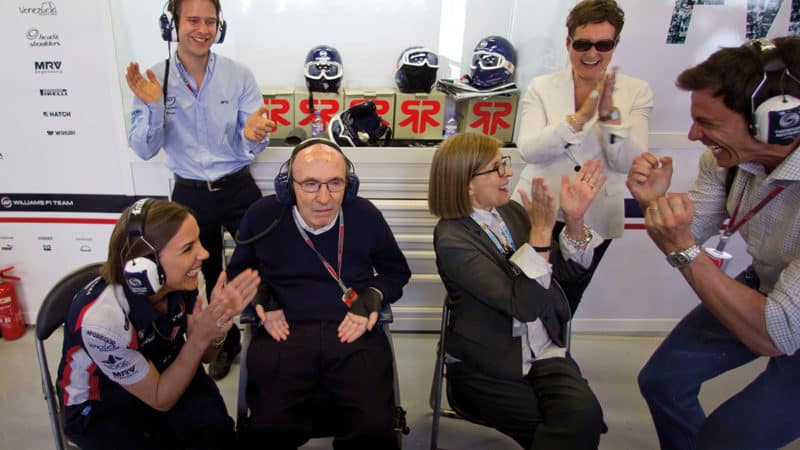
The modern-day high: the family celebrate victory in 2012 Spanish GP, courtesy of Pastor Maldonado
The openness is unsettling. Her older brother Jonathan is featured alone in the dusty shelves of the Williams Heritage department he curated with care and expertise. Spiky comments doubting Claire even knowing these rooms exist lift the lid on sibling tensions, which Claire then addresses directly, explaining how Johnny is resentful of her rise to deputy team principal, that he feels she has usurped him in the business. Snaps of the pair playing happily in childhood are long ago, as Johnny points out.
The ugly, blatant sexism inherent to motor racing is another running theme, but it’s deftly handled without any sense of victimhood from either Claire or her mother, who would have made a “great team principal” – in a different world. Claire shrugs off the barrage she faces about her gender in interviews, but there’s a weariness that it’s still a topic. We should be beyond this by now.
The film is still relatively recent, featuring moments from 2015 when Williams was still knocking on the door as contenders – including brief hopes of a 1-2 at Silverstone before the expectation deflated. The sad postscript to Williams is the team’s awful decline under Claire’s watch, Frank’s personal decline in health and the ultimate sale of this once fiercely independent team to a faceless private investment company. For all the family’s financial security, contrasting starkly to Frank’s debt-ridden no-hoper days of the 1970s, Williams lacks a happy ending. The film, like the subject, is a triumph. But my, what a tragedy.
